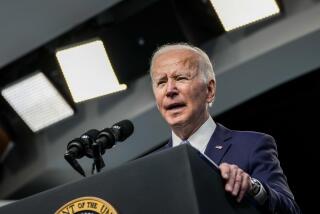Cuba Might Take a Pass on ’88 Olympics : East Germany, Hungary Accept Invitations to the Summer Games
- Share via
After the announcement Monday that East Germany and Hungary have accepted invitations to the 1988 Summer Olympics, International Olympic Committee members were optimistic that virtually all 167 countries in the Olympic movement will attend the Games in Seoul, South Korea. One notable exception, however, could be Cuba.
Robert Helmick, U.S. Olympic Committee President and one of two U.S. representatives to the IOC, said upon returning from meetings last weekend in Havana with Cuban officials, including President Fidel Castro, that Cuba is waiting for a breakthrough in negotiations among North Korea, South Korea and the IOC.
“Cuba is in a little different situation from the Eastern European countries,” Helmick said from his law office in Des Moines, Iowa. “The Cubans have a very close relationship with North Korea.
“In talking to Fidel Castro, he explained very clearly that they feel as a matter of conscience that they should support the North Koreans.”
Castro has acted as a mediator between North Korea and the IOC since discussions began three years ago. Originally demanding to stage half of the Olympic program, North Korea is believed now to be asking for eight events. The IOC has offered five, including archery, table tennis, women’s volleyball, a 100-kilometer cycling race and part of soccer tournament. North Korea has not responded to the latest proposal, which was presented in June.
Helmick would not speculate about what action the Pan American Sports Organization might take if Cuba does not attend the Games. Some PASO members have recommended that the 1991 Pan American Games, which have been awarded to Havana, be moved if Cuba does not participate in Seoul.
While 113 countries had accepted invitations to Seoul before Monday, Eastern Bloc countries were believed to be waiting to assess the outcome of last week’s South Korean presidential election. It was won by Roh Tae Woo, the original president of the Seoul Olympic Organizing Committee who remains primarily responsible for the administration of the Games.
“In our conversations over the last 18 months with East Germany and Hungary, we’ve believed they would attend the Games,” Helmick said. “We’re very optimistic that the other Eastern European countries and China will follow suit and accept their invitations by the Jan. 17 deadline. But in the international sports arena, you never know what will happen.”
More to Read
Go beyond the scoreboard
Get the latest on L.A.'s teams in the daily Sports Report newsletter.
You may occasionally receive promotional content from the Los Angeles Times.






